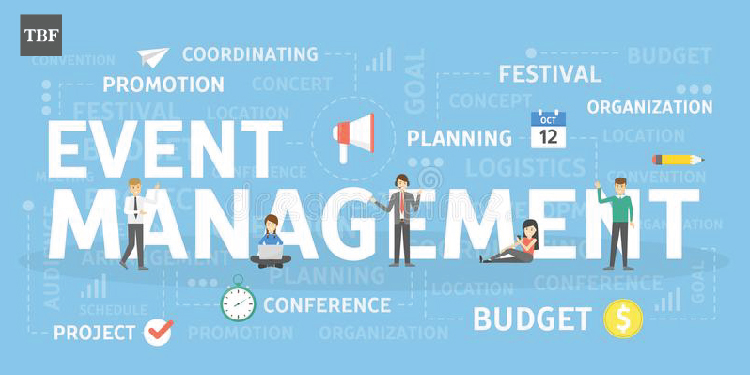The role of charlotte event companies in brand activations
Wiki Article
A Deep Study How Event Management Functions to Create Remarkable Experiences
Event management is a complicated discipline that integrates various components to craft unforgettable experiences. It needs a clear understanding of the event's purpose and target market. Planners need to browse budgeting, logistics, and advertising to assure a seamless implementation. Each element plays a vital role in accomplishing the desired effect. Nonetheless, the journey does not finish with the event itself. There are insights to discover that can form future undertakings.The Basics of Event Management
Reliable event management encompasses a variety of essential concepts that guide the planning and implementation of effective events. At its core, it includes recognizing the event's purpose, audience, and preferred end results. Determining the target market is critical, as it informs decisions connected to web content, marketing, and logistics.Budgeting is another essential facet, guaranteeing that resources are designated successfully while fulfilling the event's objectives. This includes planning for unforeseen expenses that might occur.
Time management plays a vital duty, as event supervisors should establish an in-depth timeline to collaborate numerous jobs and landmarks.
In addition, reliable interaction amongst stakeholders, vendors, and staff member is vital to guarantee alignment and prevent misunderstandings.
Risk management have to be thought about, with backup strategies in location to deal with potential obstacles, thus enhancing the total experience for attendees and assuring a seamless implementation of the event.
Secret Duties in Event Planning
In event preparation, comprehending essential duties is crucial for successful implementation. The event organizer is responsible for looking after logistics and making sure all aspects line up with the vision. Additionally, efficient supplier management is important for keeping high quality and cultivating strong collaborations throughout the planning process.Event Planner Duties
An occasion coordinator manages the intricate elements of event preparation, ensuring seamless implementation from fertilization to final thought. They are accountable for conceiving the event theme, establishing spending plans, and creating timelines to keep the task on track. Coordination with stakeholders, including clients, place managers, and volunteers, is necessary to align expectations and promote communication. The organizer additionally supervises logistics, such as wedding catering, transportation, and innovation requires, making certain all parts function harmoniously. They carry out website visits, manage timetables, and troubleshoot issues that may emerge throughout the event. Post-event, the planner evaluates the event's success, gathering feedback and examining end results to educate future tasks. This multifaceted role requires strong organizational skills, interest to detail, and efficient social interaction.Supplier Management Basics
Steering with the landscape of vendor management is vital for successful event planning. Reliable vendor management includes recognizing, choosing, and collaborating suppliers that give critical services, such as catering, audiovisual support, and decoration. Event planners have to maintain solid interaction with vendors to ensure that all aspects straighten with the event's vision. Trick functions consist of the vendor manager, who manages contracts and negotiations, and the logistics coordinator, liable for on-site configuration and execution. It's critical to develop clear expectations and timelines, fostering a collaborative environment that boosts the general experience. By prioritizing these aspects, event coordinators can navigate possible difficulties, making sure that every detail adds to a seamless and unforgettable event.Crafting a Vision: Principle Advancement

When a vision is developed, it becomes necessary to convert it into actionable elements. This consists of specifying the atmosphere, choosing proper venues, and identifying the event's design. Teaming up with stakeholders, including sponsors and companions, even more improves the concept, making sure that all events share an unified understanding of the event's objective. Ultimately, a well-developed vision not only boosts participant engagement but likewise establishes the phase for memorable experiences that resonate long after the event concludes.
Budgeting and Resource Allotment
With a clear vision in location, the following action in event management involves careful budgeting and resource allotment. This vital phase assurances that all required elements are funded and lined up with the event's goals. Event managers begin by estimating costs associated with venue option, food catering, enjoyment, and advertising. They produce an in-depth budget plan that outlines each classification, allowing for transparency and accountability.Resource appropriation prolongs beyond funds; it also encompasses human sources. Recognizing group roles, obligations, and timelines is crucial to guarantee efficiency. Event managers have to additionally consider backups for unexpected expenses or changes in range, developing a buffer within the budget plan.
Prioritizing costs on elements that improve guest experiences is critical. By tactically assigning sources, event supervisors take full advantage of impact while keeping financial control. This self-displined method not only cultivates successful occasions yet likewise constructs integrity and count on with stakeholders and individuals.
Logistics: The Backbone of Event Execution
While budgeting prepares for an event, logistics function as its backbone, assuring that every facet is performed efficiently and efficiently. charlotte event companies. This includes a wide variety of tasks, including venue option, transportation plans, and tools procurement. Efficient logistics management needs meticulous planning and sychronisation to ensure that all components align with the event's timeline and objectivesSecret parts of logistics include stock management, where materials and products are tracked to stop shortages, and staffing, which includes recruiting and training workers to take care of various tasks. Interaction is additionally crucial, as it helps with partnership amongst suppliers, enrollers, and the event group.

Advertising and Promo Approaches
Reliable advertising and marketing and promo strategies are vital for making best use of presence and involvement at navigate here an occasion, as they create rate of interest and enjoyment among prospective participants. Event managers employ a mix of traditional and digital marketing techniques to reach their target market. Social media site systems, email campaigns, and targeted advertisements are generally made use of to develop buzz and foster area interaction. Partnerships with influencers or industry leaders can boost reputation, while involving material such as videos and testimonials can reverberate with prospective attendees.On top of that, leveraging event-specific hashtags and producing shareable graphics encourages organic promotion among guests. Early bird ticket deals and special promotions can incentivize registration, furthermore enhancing rate of interest. In addition, a well-designed site that uses simple navigation and clear visit our website info concerning the event can enhance the user experience. By applying these advertising and promotion strategies, event supervisors can guarantee higher exposure and ultimately develop a memorable experience for all individuals.

Measuring Success: Comments and Assessment
Success in event management rests on durable feedback and analysis systems. These procedures are necessary for identifying the performance of an event and recognizing locations for improvement. By gathering input from participants, organizers can examine complete satisfaction degrees, understand choices, and gauge general influence. Surveys and meetings act as important devices for accumulating quantitative and qualitative data, permitting extensive evaluation.Additionally, assessing vital performance signs (KPIs) such as presence rates, interaction degrees, informative post and return on financial investment (ROI) offers a more clear image of event success. Post-event debriefing sessions with the planning team likewise add insights, fostering a society of continual improvement.
Eventually, a methodical strategy to feedback and assessment not only improves future occasions yet also strengthens connections with stakeholders. By applying these techniques, event supervisors can develop remarkable experiences that reverberate with individuals and drive recurring involvement.
Frequently Asked Questions
How Do Event Managers Handle Unexpected Challenges During an Event?
Event supervisors resolve unanticipated challenges by continuing to be calmness, assessing the circumstance, and applying contingency plans - charlotte event companies. They interact successfully with their group, adjust rapidly, and prioritize services to guarantee the event proceeds efficiently and effectivelyWhat Innovation Tools Are Important for Modern Event Management?
Important technology devices for contemporary event management consist of event enrollment software application, project management applications, attendee involvement platforms, and analytics tools. These sources enhance processes, boost interaction, and improve overall event experiences for organizers and participants alike.Just How Do Social Differences Influence Event Planning and Execution?
Social differences greatly affect event planning and implementation. They impact styles, customs, interaction styles, and assumptions, requiring tailored techniques to guarantee inclusivity and regard, ultimately forming the overall experience and success of the event.What Are the Moral Considerations in Event Management?
Honest considerations in event management incorporate openness, sustainability, cultural sensitivity, and inclusivity. Planners should focus on fairness, respect diverse target markets, decrease ecological influence, and warranty availability to develop liable and memorable experiences for all individuals.How Can Sustainability Be Integrated Into Event Planning?
Sustainability can be incorporated right into event preparation by making use of environment-friendly products, lessening waste, sourcing neighborhood vendors, executing carbon countered programs, and promoting digital solutions to decrease paper usage, thus improving environmental consciousness within the event's structure.Report this wiki page